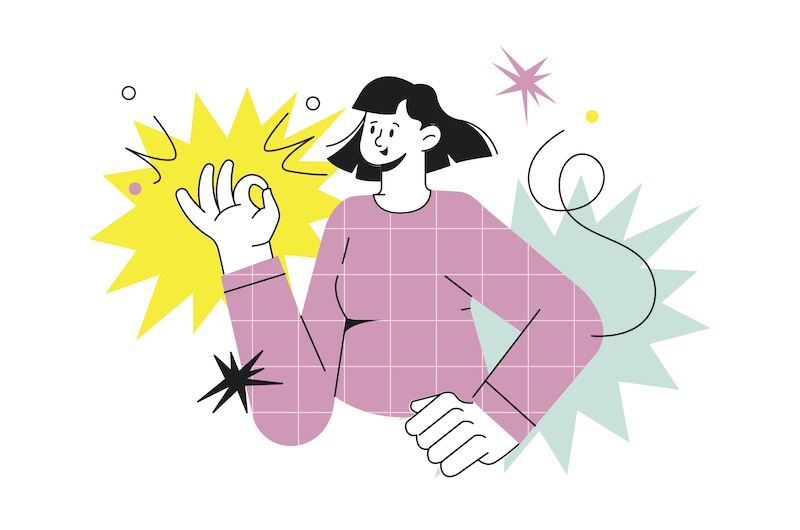
Sudden Memory Loss: Possible Causes and Consequences
Table of Contents
Sudden memory loss is when a person forgets information that almost seems unforgettable. An example would be the name of one’s spouse or child. In other words, a quick loss of brain function will lead to sudden memory loss.
You’ve most probably has had the experience that you just cannot remember where you’ve put your keys or mobile phone. Or sometimes, in a conversation, you want to describe something, and you cannot find the word you are looking for. Sounds familiar? Then you’ve, like most of us from time to time, experienced temporary short-term memory loss. This usually is not something to worry about.
But if you frequently forget things and get confused from time to time, you might have a condition called Sudden Memory Loss.
Memory is one of the most complex aspects of our brain functions, and there are always reasons we experience memory loss, even if it is only for a few minutes. To understand what Sudden Memory Loss is, as well as the symptoms and consequences of it, we have to look at some of the most common causes.

What Is Sudden Memory Loss?
As we’ve said, once in a while, all of us forget a word, can’t remember directions, or misplace our mobile phones. This type of sporadic memory loss is not seen as Sudden Memory Loss. They are just common memory slips, and most of us experience it some time or another.
More severe memory slips like forgetting your spouse’s and children’s names or your street address are called Sudden Memory Loss. Sudden Memory Loss can also manifest as sudden confusion and disorientation. For example, people can totally forget where they are and why they are there.
Sudden Memory Loss and confusion are interruptions of short-term memory. The person may be disoriented, confused about time, or even forgetting names, but generally, they are otherwise alert and have normal thinking abilities.
What Causes Sudden Memory Loss?
When we talk about memory loss in this article, we are not talking about people with a so-called photographic memory who have lost that ability but about “normal” people who experience a sudden loss of memory.
Memory loss can be a sign of Alzheimer’s disease or another type of dementia. But when it is a temporary and sudden short-term memory loss, it’s often because of other things. Fortunately, many of these causes are treatable or can be avoided.
Let’s look at some of the causes of sudden memory loss.
Medicines
Many prescription drugs you are taking might affect your memory. We list the most common conditions and some of the medications generally prescribed for them. If you are using any of these drugs and are experiencing Sudden Memory Loss often, you should seek medical advice.
- Anxiety (Alprazolam, Chlordiazepoxide, and Lorazepam)
- Depression (Amitriptyline, Clomipramine, Desipramine, and Doxepin)
- High blood pressure (Atenolol, Captopril, Metoprolol, and Sotalol)
- High cholesterol (Atorvastatin, Fluvastatin, and Simvastatin)
- Pain (Fentanyl, Hydrocodone, and Hydromorphone)
- Seizures (Carbamazepine, Gabapentin, Pregabalin, and Valproic acid)
- Trouble sleeping (Eszopiclone), Zaleplon, and Zolpidem)
While some prescribed medicine might cause memory loss, some supplements are good for memory.
Depression
It’s often believed that depression only results from a chemical imbalance in your brain, but this doesn’t consider how complex the disease is. There are many possible causes of depression, including faulty mood regulation by the brain, genetic vulnerability, and stressful life events, medications, and other medical problems.
It is widely accepted that depression can cause short-term memory loss. For someone with depression, it might be impossible to multitask or to remember the detail. This is because depression affects the cognitive functions that contribute to memory.
Mainly if the depression and stress are caused by emotional trauma, the person often experiences a Sudden Memory Loss.
Depression often affects your sleep quality. And sleep deprivation or frequently waking during the night leads to fatigue, which can also contribute to Sudden Memory Loss.
Vitamin B12 Deficiency
Vitamin B12 deficiency can be the cause of a variety of symptoms. Generally, these symptoms develop gradually but often can worsen suddenly if the condition goes untreated.
A Vitamin B12 deficiency may affect the nervous system – symptoms include numbness, fatigue, poor balance, breathlessness, and memory trouble. A Vitamin B12 deficiency is surprisingly a common source of short-term memory loss. A regular Vitamin B-12 intake is necessary for healthy brain function and thus a healthy and good memory.
Head Injuries
Brain injury or concussion can be the result of a violent blow to the head. Even mild brain injury may affect your brain cells. These brain injuries can cause sudden Short Term Memory Loss. You may only have a memory loss regarding the circumstances around the event itself, or you can suffer a more severe memory loss when you completely forget an event or the people you spoke with.
Strokes
A stroke is a “brain attack” customarily caused by a sudden loss of blood flow to the brain or bleeding inside the head. Studies have shown that most stroke victims develop memory problems. Although research has shown that a stroke in many cases leads to Alzheimer’s disease or another dementia type, many people who have had a stroke only experience Sudden Memory Loss and confusion from time to time after the stroke.
The best way to prevent memory loss periods after a stroke is to control high blood pressure. Regular check-ups, exercising, healthy eating habits, and keeping a normal cholesterol and blood sugar level, can also help stroke victims to prevent sudden short-term memory loss.
Amnesia
Amnesia is a form of memory loss. Some people with amnesia can’t recall facts or past experiences but usually still, remember who they are and retain their motor skills.
A type of amnesia, namely transient global amnesia (TGA) leads to Sudden Memory Loss. It is a condition poorly understood. If you have TGA, you experience the confusion that comes and repeatedly goes over several hours. Generally, you will experience memory loss in the hours before the attack. However, you will most probably also don’t remember the experience.
Psychologists have the theory that TGA occurs due to a brief blockage of the blood vessels supplying your brain. This type of Sudden Memory Loss occurs more frequently in middle-aged and older people.
Brain Tumors
Studies have shown that 1 in 2 people who have brain tumors experience memory difficulties. But many only experience periods of sudden short-term memory loss and confusion and not such severe problems as forgetting the names of familiar objects like “a cup” or “mobile phone.”
It’s difficult to determine how a brain tumor will affect memory. However, it’s more likely that you will experience memory loss if your tumor is in the frontal or temporal lobes of the brain.
Thyroid Problems
The thyroid is a gland providing hormones to control vital functions of your body. Your thyroid has an impact on your whole body. An underactive thyroid gland (hypothyroidism) can result in forgetfulness and Sudden Memory Loss.

What to Do
Although it is accepted that all of us experience memory loss now and then, the question is always when do you have to get medical advice. The rule of thumb is that as long as it only forgets where you’ve put your keys or what your neighbor’s name is, you don’t have to worry too much.
As soon as you frequently lose your keys and can’t remember your children’s names, it is time to consult your doctor.
But you can do a few things to avoid or decrease these memory loss episodes.
- Let your doctor or pharmacist check the medicine and supplements you are using. Some of them might enhance your chances to have Sudden Memory Loss frequently.
- Get professional help if you suffer from depression as stress and depression can bring on short-term Sudden Memory Loss.
- Ensure that you get enough Vitamin B12 daily.
- Don’t abuse alcohol or take a drink too frequently.
- Get medical advice when you have a head injury, even if you think it is not severe.
- Accept that if you have had a stroke or brain tumor, suffer from amnesia, or have thyroid problems that your memory might be impaired to a certain extend.
FAQ
What Is Sudden Memory Loss?
Memory slips like forgetting your spouse’s and children’s names or your street address are called Sudden Memory Loss. It can also manifest as sudden confusion and disorientation.
What causes Sudden Memory Loss?
There are various causes of Sudden Memory Loss. However, all the reasons have to do with brain function, whether prescribed medicine that affects your brain functions or a brain tumor that has a physical impact on parts of your brain.
Is there a cure for Sudden Memory Loss?
To find a possible cure for Sudden Memory Loss, you have to determine what the cause of it is most probably. Then, by treating the cause, you indirectly treat the Sudden Memory Loss problem.